- Home
- Harry Harrison
Harry Harrison! Harry Harrison! Page 9
Harry Harrison! Harry Harrison! Read online
Page 9
“We would need some money in the bank before we leave,” I said. “That’s for starters. Bruce is publishing those little magazines now and he offered me a job. Art director or copy editor, I can take my pick.”
This was Bruce Elliott, a writer and an old friend—and now the publisher of a number of small magazines. “I think I’ll grab the art job and keep my gray cells pristine for freelance writing evenings and weekends.”
Joan looked around at her home. It was important to her, I knew. “We’ll have to sell the air conditioner,” she said. Ever practical, she had made up her mind. Our lives and our marriage were more important than four walls. I have always had the opinion that when it comes down to basics—and survival—women are far more realistic than men.
I nodded agreement. “And I’ll sell the folding bicycle. I’ll be happy to see it go.” It was war surplus, built for paratroopers. To save weight there were no fenders on it and I got a streak of mud up my back when I rode it to work in the rain.
It all seemed simple enough. We had been over the details many times in the past. I would work hard and get some money ahead. Whatever of our goods that we couldn’t take with us, we would store in the cellar of Joan’s parents’ house. Our Ford Anglia wasn’t the biggest car in the world—but it was certainly the sturdiest. And leaving New York would not be forever; this would be a trial run to see if I could hack it at full time and get into some serious freelance writing. We would stay just long enough for me to get out of the writing-to-stay-alive mill and get tucked into the fiction that really counted.
We took a worst-case scenario. What if it didn’t work and the money ran out? The answer was simple. Joan’s father was well enough off, with his own garment embroidery factory. There was no way that he would allow his daughter and grandson to fester in the depths of Mexico. The money to bail us out would be sent as soon as he got our cable. We would then have enough to drive back to New York. When we were back we would find another apartment, buy another air conditioner—and I would get another editorial job. And eventually we would pay the money back. It would work out and, basically, we would be right back where we had started. But at least we would have tried.
The more that we thought about it the better it sounded. We were filled with enthusiasm, feeling that at this time anything was better than New York. We thought the logic behind this move was impeccable—our friends thought that we were raving mad. What our parents thought about this resolution—which included taking their year-old grandson south to the jungles and deserts—does not bear repeating.
The plan to get out was a simple one. I would take the job with Bruce, working days—and keep on freelancing to get some money ahead. In those penurious postwar days writers actually helped each other. When I was editing I bought as much as I could from friends; they did the same when they were employed. Bruce Elliott had written many articles for me, before becoming managing director of a group of pocket-sized magazines. I had already called him about a job when exploring all possibilities. The choice between art director and copy editor was an easy one to make. Art. That way I could save the writing bits of my brain for freelance work. I took the job.
As the new art director of Picture Week I had to lay out the articles, design the interior, size the photographs, paste up the copy after it had been set, then screen the pics when they came back from the engraver. I had to do this for sixty-four pages every week. Child’s play for someone who had helped to hack out endless pages of comic art.
I was filled with such enthusiasm, the future began to look brighter. Language was going to be a problem—we couldn’t live in Mexico without at least trying to speak Spanish. I had studied it in high school and hated it. Except for the preterite of ir, all of it had long vanished. Joan had studied French so had a Latin language background. We turned to an Esperanto friend, Jim Donalson. He had come from his home in Delaware to New York to teach high school Spanish, and appeared to be starving to death. Tall and thin, he had the world’s best appetite. We traded Spanish lessons for meals and both sides were satisfied. Although Joan was worried that she wasn’t making big enough meals, since he finished everything served to him and still looked hungry—even after seconds and dessert. He ate at least three times what I did so I did not share her concern. Nevertheless she planned to fill him at least one time. To this end she prepared one of our staple—and most filling—meals. Hot dogs stuffed with cheese and wrapped with bacon. A single one of these cholesterol nightmares was a meal; two stretched the stomach’s capacity. I think Jim ate twelve before raising the white flag.
1955 had faded into 1956 as I worked to get the money ahead for our trip. Although I didn’t know it at the time, art directing would be the last paid job I would ever have. Early in the year, when we had saved up the incredible sum of $250, we packed up, reluctantly sold our air conditioner—for a New Yorker the final act—and loaded the car. I put on a roof rack for the baby’s crib and part of our luggage, then covered the backseat with a thickly padded board so he could roll around in comfort. We said our last good-byes to horrified parents and gloomy friends and headed south.
That was over fifty years ago, and the world then was a very different place indeed. America had fewer people and fewer roads. No divided highways or freeways—it was two-lane blacktop all the way. The motels we stayed at were more like the Bates Motel than the giant Holiday Inns and Ramadas we know today. They were mostly little decaying wooden buildings where you always borrowed the room key before checking in, then inspected the place before dropping three bucks for the night. Joan could always sniff out the mold. I checked the plumbing and threw back the covers; wrinkled sheets and the odd pubic hair indicated that the linen had not been changed and thank you, no, not this time. All the cottages had a kitchen of sorts, which made it easier to feed the baby and saved a lot on restaurant bills.
South first to Washington, D.C., to spend two days with my aunt Rose, sleeping in her Murphy bed. (Are they gone now too?) She was almost as good as our parents at laying on the guilt and reminding us how we were imperiling our infant, putting our lives and his in danger, and generally making a mess of things. Time to leave. A storm front was coming south from Canada and we wanted to stay ahead of it. We waved bye-bye and crossed into Virginia. Then down through Tennessee to Alabama where, when we stopped at a traffic light, we heard a local girl look at our car and say, “My, my … what a cute little Jag-uar!”
You must realize that the undersquare, underpowered, undersize Ford Anglia 100E is probably the ugliest car in the world, after the Citroën 2CV. But she was right about something: at least it was as English as a Jaguar. We were really getting pretty far away from civilization and the sophistications of New York.
I had taken some magazine assignments with me so we could top up our funds when we finally reached our destination. While doing some research, I had stumbled over the interesting fact that at the battle of San Jacinto, when the Texicans whupped the Mexicans, they had gone into battle shouting “Remember Goliad—and the Alamo!” This wasn’t the way I had learned it when I was stationed in San Antonio. So we stopped at Goliad, Texas, for a day and I rooted through the library and the local dusty museum. (For those who care—the story is true. Santa Ana’s men had massacred a great number of locals at Goliad, getting all the Texans very annoyed. The Alamo was small stuff compared to this—they just had some big names there and better publicity in later years.)
Then we reached Laredo and the Mexican border. The American officials didn’t even look up when we left the country and drove across the international bridge. Bored and uniformly paunchy Mexican police waved us to the office there. We filled out the tourist forms that allowed us and the car into the country for a stay of six months. If the visa was renewed every six months one could live in Mexico forever, as a lot of Americans did.
We weren’t thinking about that at the time. Just being in a foreign country was excitement enough. We drove out into the desert and headed across it to Monterrey, Joa
n and Todd’s first visit to Mexico. They took it all in their stride. The food was great, lodging clean and cheap, with gasoline at two pesos a gallon—about sixteen cents.
We drove on with no certain plan in mind. Monterrey was no place to tarry—big, dirty, and industrialized—nor was Ciudad Victoria any better. In those days the main road from the border to Mexico City ran through tropical and ramshackle Tamazunchale, and then wound up into the mountains. The wide river shrank to a tiny silver trickle below as we climbed the cliffs above a mile-high drop. Burst tire fragments, brake marks on the pavement, and holes in the trees beside the road indicated that some cars and trucks had indeed made that drop. There were no guardrails. Joan held the baby in absolute silence while I clutched tight to the steering wheel with very damp palms. The Mexicans have an endearing custom of leaving little crosses and name markers by the road where their loved ones have met their deaths in accidents. We passed a great number of these impromptu shrines. We relaxed only when the highway left the mountains and the road stretched out onto the central plateau. Then we were through Pachuca and were in the outskirts of Mexico City and still had seen no place that tempted us to stop.
This was well before the endless Mexico City smog, but the slums and shantytowns of the outskirts of Mexico District Federal, or D.F., or just plain “Mexico” to the Mexicans, were very off-putting. We had had enough of big cities for a while so we kept driving south. Driving higher and higher, up almost to the pass of Cortez, which ran between the two volcanoes Iztaccíhuatl and Popocatépetl. Popo, as the locals called it, was snow-covered in winter and still active; smoke rising from its white cone. We drove quickly through the damp, cold city of Amecameca and down the slopes beyond, through forests of great pine trees, before finally emerging on the fertile plain below. It was late afternoon when we passed through the market town of Cuautla and crossed the bridge over a small river just south of town and braked to a stop when the pavement ended.
“Am I wrong—or is the road ahead made of dirt and mud and filled with ruts and rocks?” Joan said. I could only nod dumb agreement. “We can’t go any further.”
“I remember seeing a sort of motel back there,” I said. “Let’s spend the night and figure out what we do next in the morning.” This was Cuautla, Morelos. We did not know it at the time, but it was to be our home for the next year.
It was a horrible night, the worst we had spent since leaving New York. It certainly did not augur well for our Mexican future. The so-called motel was nothing more than a connected row of rooms built of concrete blocks. There was no front door to these cells, just canvas curtains, which were no barrier to either the street noise, nor the mosquitoes that appeared in ravenous swarms as soon as the sun went down.
Dawn found us wide awake, exhausted, swollen with bites, the none-too-clean walls now splattered with bloody patches where satiated mosquitoes had been squashed. “I don’t like this place,” Joan said, straightening the blanket on Todd. He was sound asleep and unbitten; well protected by his dutiful parents during the long night. “If by ‘place’ you mean this dump—correct. But we still don’t know anything about the town. Certainly the climate seems right. Why don’t we see if there is a better hotel to stay for another night? Take a day off, get some rest—and some sleep. We have been a long time on the road. Let’s put off any major decisions until tomorrow.”
Joan reluctantly agreed. I did not want to admit that to me, hammered by fatigue, things were looking very black indeed. We had been in Mexico for over a week and still did not know what we wanted to do. And low as the prices were, every day meant a little trickle out of our cash hoard. Had the entire thing been a big mistake? Was this reality speaking—or just depression and weariness? A day off might very well be a good thing. Surely this was a way of avoiding any decision for the moment, a way of not admitting defeat, that we might have to turn back. We were too tired to argue or disagree.
After breakfast in a nearby cafe, with many cups of good black Mexican coffee, we drove back down the main street, until we saw a sign with an arrow pointing east. HOTEL VASCO, it read. We bumped through unpaved and rocky streets with a growing feeling of depression. What were we doing here so far from civilization? If we had not been so tired we might have turned back to the main road and headed north toward home. Instead we persevered and eventually we found the hotel. All that could be seen from the road was a high wall, overgrown with flowering vines. Filled with suspicion and foreboding we drove in through the open gate to the patio beyond.
For a wonderful surprise. Here was a wealth of flowers, blossoming trees, neatly trimmed grass, everything modern and clean. This was a vast improvement over the fleapit where we had spent the night. The hotel was Spanish colonial in design although recently built, and designed with style and taste. There was a cool lobby, an English-speaking receptionist to go with all these lovely gardens, and immaculate rooms. We checked in, unpacked, and showered. And discovered what must have been the only, tiny fault in this otherwise paradisiacal retreat.
Apparently, when the hotel was being built, a slight mistake had been made in laying out the water pipes. The plumbers had reversed the hot and cold water systems. Since the pipes were buried in the concrete floors, nothing drastic could be done about correcting the error. It could be lived with; we found that the Mexicans were very fatalistic about things that could not be changed. And apparently the error could be modified quite easily. All the faucet handles on the sinks and showers were removed and reversed. Foreigners might confuse C with COLD, when it really meant CALIENTE. But that, and F for FRIO, would be quickly sorted out.
Only one small problem remained—and it was a rather frightening one when first discovered. While sitting comfortably on the commode, after answering a call of nature, one would happily grab the handle and flush the toilet.
And move away rather quickly when steam rose up from the bowl. Many interesting things happen in life; we found that this was one of the more disconcerting.
But if the Vasco had any other faults, they were not easily observed. I had a beer in the tiny bar while Joan unpacked our bags and gave Todd his bottle. Milk in Mexico can be very suspect and we tried to avoid it. Instead we had brought numerous cans of powdered milk with us from the States. This, mixed with boiled water—or sterile water bought in the drug store—formed a basic part of his diet. Once he had been fed we tried out the hotel restaurant. After a fine lunch of guacamole salad, tacos de frijol, and enchiladas we felt better able to face the world. After a nap during the siesta we went out to explore, and soon discovered that Cuautla was a lovely little town. Our spirits began to rise.
This compact city was set in the middle of the fertile plain that stretched southward from the base of the volcanoes. Natural springs abounded and cool water ran along the streets in open aqueducts. Corn grew in the fields that began just at the outskirts of town. Here was sugarcane as well, pineapples, and all manner of vegetables, including some that we had never seen before. Cuautla was the market town for the entire area—the market itself a joy to explore, sheer paradise. There must have been four acres of stalls, shops, butchers, flower stands, hot chili vendors, vegetable shops, bakers, hardware stores, ramadas, outdoor kitchens with tables and stools—and wandering mariachi bands filling the market with music. It put to shame every other market we had seen in Mexico. You could buy everything there—from a set of furniture down to a handful of fresh limes. These from the Indian women who sat on their heels saying veinte, veinte while holding out a handful of limes to the people who passed by. (They were saying “twenty,” meaning twenty centavos. With the peso worth eight cents, the four or five freshly picked limes cost under a cent and a half.)
Sometime during that first day we met Jim Touhy. He heard us talking English and introduced himself. In these simple, bygone days this sort of thing did happen. It wasn’t an approach or a con—just friendliness and curiosity. Only Spanish was spoken here and the sound of English was a novelty. Jim was one of the only four Ameri
cans who lived in Cuautla. There were absolutely no American tourists to be found in this purely Mexican market town at the end of a dead-end road. With the exception of Adam, who had retired from a car dealership, the Americans were all war veterans who had ended up in Mexico. They had their tiny pensions, which would have enabled them to starve to death back in the States, but which went a long way here. On these minute sums they could live very well indeed. This was particularly true of Herman, who had a pension from the First World War. And also true of Willy, who was existing quite comfortably on a pension from the Spanish-American War. It could not have been more than fifteen dollars a month—but it sufficed.
Jim was renting a small apartment in Don Carlos Tornel’s hacienda. He took us to see it and it was wonderful. If we could find something like this, why then Cuautla would be a good place to settle down in. We stayed on at the Vasco and every day toured the streets of Cuautla looking at apartments and houses. It took us almost a week to locate anything inhabitable.
It happened by accident. We discovered a hidden motel completely by chance after we had strayed from the center of town. There were very few paved roads in Cuautla. Only the highway that cut through the center of town was paved, this and the few residential streets that ran off it. Within one block, like on the highway itself, all paving vanished and the streets turned to rocks and ruts. The Anglia, with its big wheels and eight-inch clearance under the differential, the lowest part of the car, took all these in its stride. That is how we found the Camerones Motel.
It had been recently built, had verdant gardens, banana trees, and grassy areas, all of this hidden behind the high walls. There were ten house-sized units, and the rent was incredibly cheap. We did not question circumstance but paid for a week in advance and moved in. It turned out that we were the only occupants of the motel. It took us a long time to put together the story, and it turned out to be a fascinating and very Mexican one.

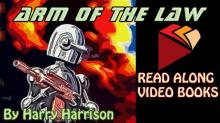 Arm of the Law
Arm of the Law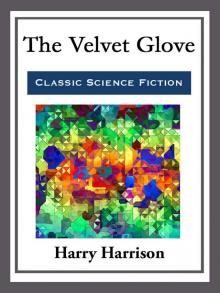 The Velvet Glove
The Velvet Glove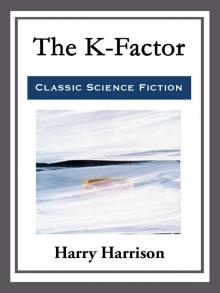 The K-Factor
The K-Factor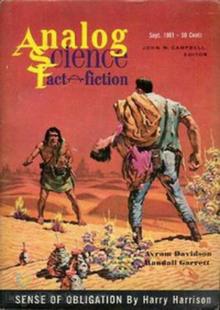 Sense of Obligation
Sense of Obligation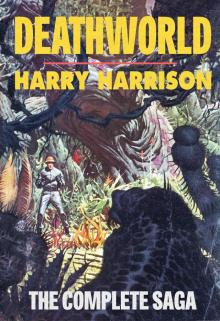 Deathworld: The Complete Saga
Deathworld: The Complete Saga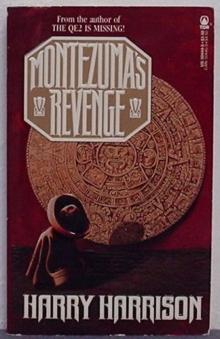 Montezuma's Revenge
Montezuma's Revenge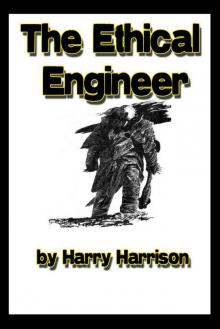 The Ethical Engineer
The Ethical Engineer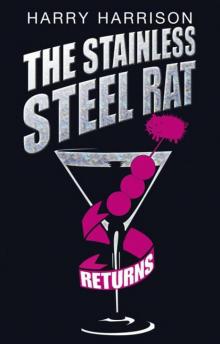 The Stainless Steel Rat Returns
The Stainless Steel Rat Returns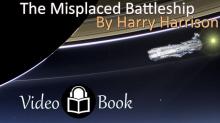 The Misplaced Battleship
The Misplaced Battleship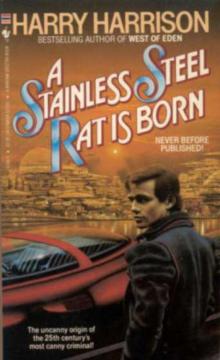 The Stainless Steel Rat is Born
The Stainless Steel Rat is Born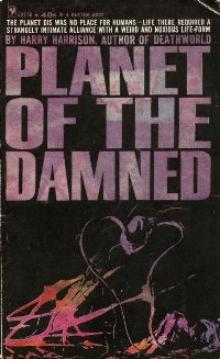 Planet of the Damned bb-1
Planet of the Damned bb-1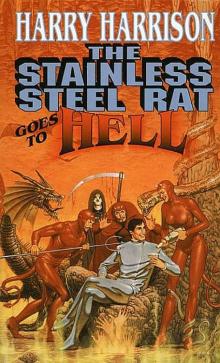 The Stainless Steel Rat Goes to Hell ssr-10
The Stainless Steel Rat Goes to Hell ssr-10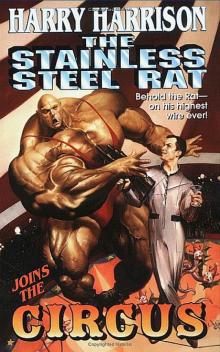 The Stainless Steel Rat Joins the Circus ssr-11
The Stainless Steel Rat Joins the Circus ssr-11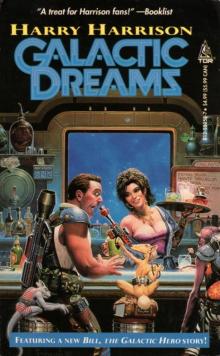 Galactic Dreams
Galactic Dreams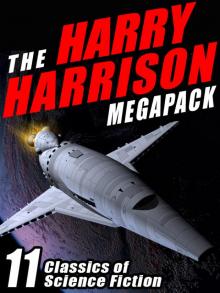 The Harry Harrison Megapack
The Harry Harrison Megapack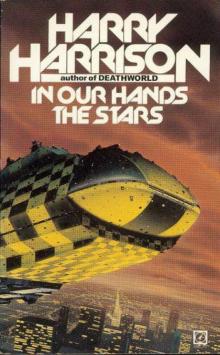 In Our Hands the Stars
In Our Hands the Stars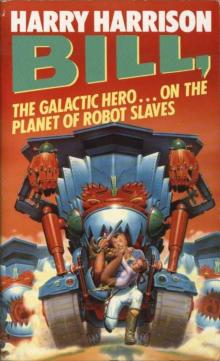 On the Planet of Robot Slaves
On the Planet of Robot Slaves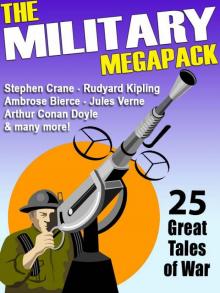 The Military Megapack
The Military Megapack Make Room! Make Room!
Make Room! Make Room!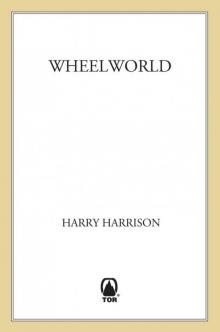 Wheelworld
Wheelworld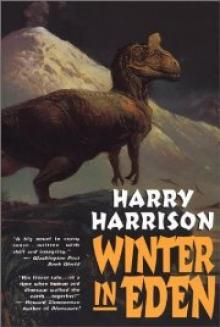 Winter in Eden e-2
Winter in Eden e-2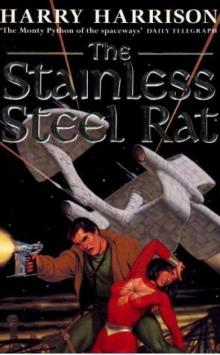 The Stainless Steel Rat
The Stainless Steel Rat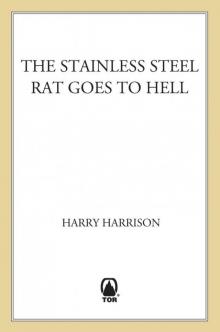 The Stainless Steel Rat Goes to Hell
The Stainless Steel Rat Goes to Hell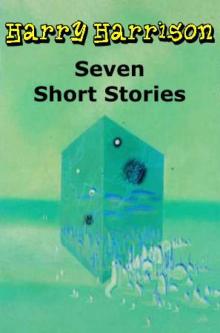 Harry Harrison Short Stoies
Harry Harrison Short Stoies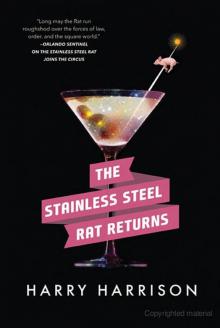 Stainless Steel Rat 11: The Stainless Steel Rat Returns
Stainless Steel Rat 11: The Stainless Steel Rat Returns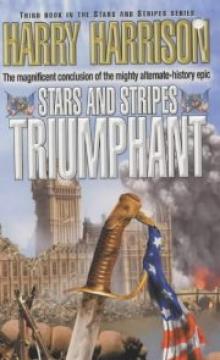 Stars and Stripes Triumphant sas-3
Stars and Stripes Triumphant sas-3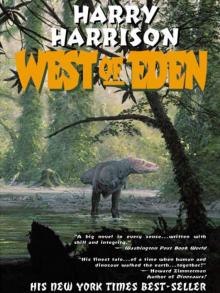 West of Eden
West of Eden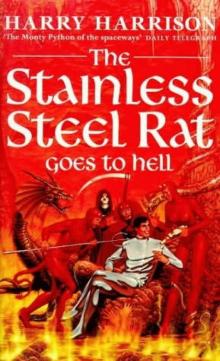 The Stainless Steel Rat Go's To Hell
The Stainless Steel Rat Go's To Hell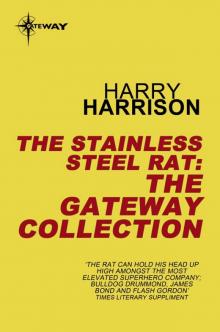 The Stainless Steel Rat eBook Collection
The Stainless Steel Rat eBook Collection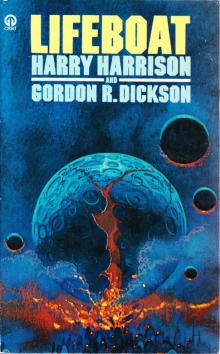 Lifeboat
Lifeboat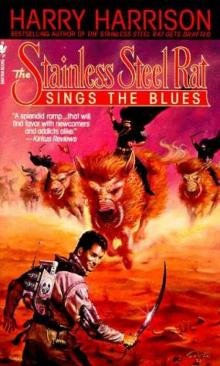 The Stainless Steel Rat Sings the Blues
The Stainless Steel Rat Sings the Blues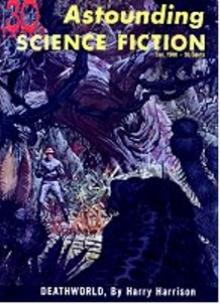 Deathworld tds-1
Deathworld tds-1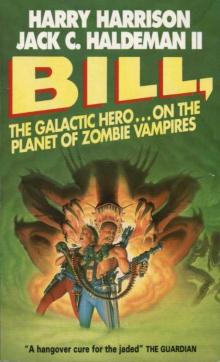 On the Planet of Zombie Vampires
On the Planet of Zombie Vampires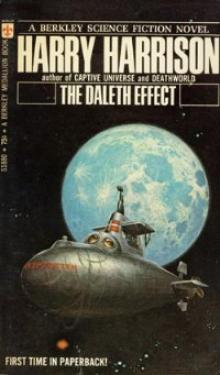 The Daleth Effect
The Daleth Effect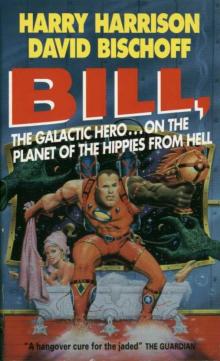 On The Planet Of The Hippies From Hell
On The Planet Of The Hippies From Hell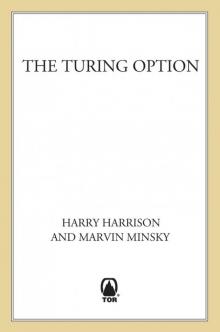 The Turing Option
The Turing Option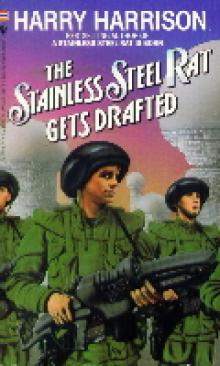 The Stainless Steel Rat Gets Drafted
The Stainless Steel Rat Gets Drafted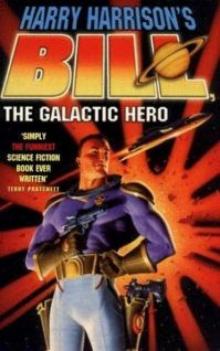 Bill, the Galactic Hero btgh-1
Bill, the Galactic Hero btgh-1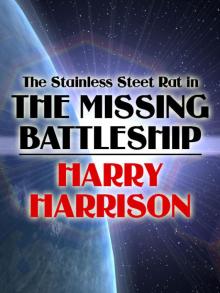 The Stainless Steel Rat in The Missing Battleship
The Stainless Steel Rat in The Missing Battleship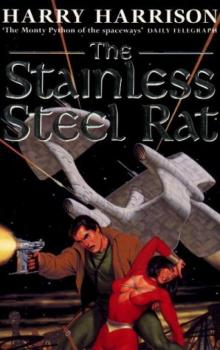 The Stainless Steel Rat ssr-1
The Stainless Steel Rat ssr-1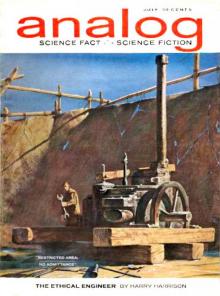 The Ethical Engineer (the deathworld series)
The Ethical Engineer (the deathworld series)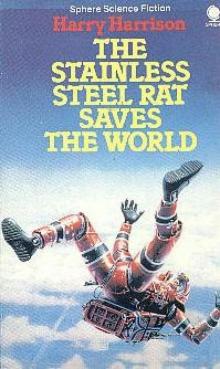 The Stainless Steel Rat Saves the World ssr-3
The Stainless Steel Rat Saves the World ssr-3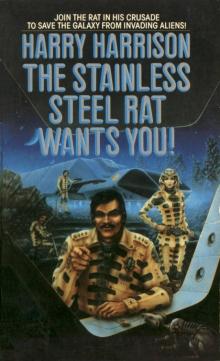 The Stainless Steel Rat Wants You
The Stainless Steel Rat Wants You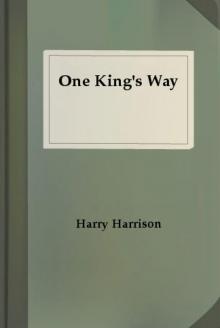 One King's Way thatc-2
One King's Way thatc-2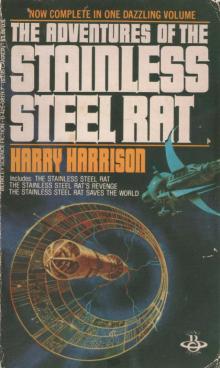 The Stainless Steel Rat Saves The World
The Stainless Steel Rat Saves The World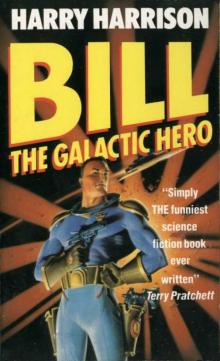 Bill, the Galactic Hero
Bill, the Galactic Hero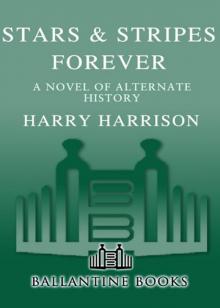 Stars & Stripes Forever
Stars & Stripes Forever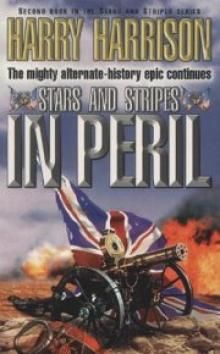 Stars and Stripes In Peril sas-2
Stars and Stripes In Peril sas-2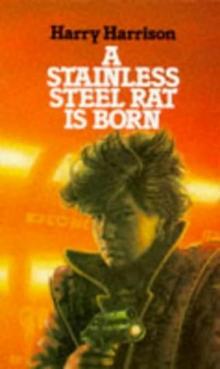 A Stainless Steel Rat Is Born ssr-6
A Stainless Steel Rat Is Born ssr-6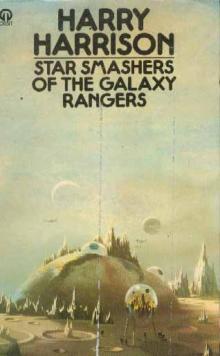 Star Smashers of the Galaxy Rangers
Star Smashers of the Galaxy Rangers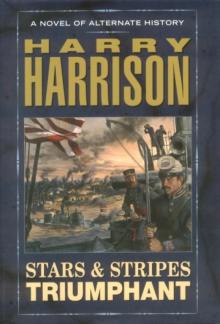 Stars & Stripes Triumphant
Stars & Stripes Triumphant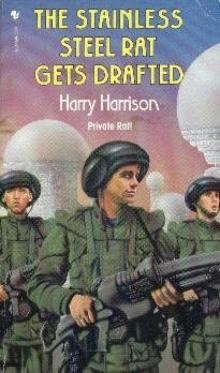 The Stainless Steel Rat Gets Drafted ssr-7
The Stainless Steel Rat Gets Drafted ssr-7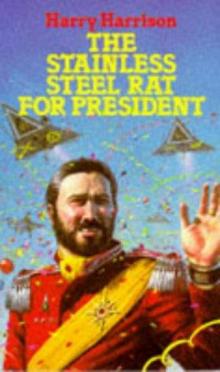 The Stainless Steel Rat for President ssr-5
The Stainless Steel Rat for President ssr-5 The Hammer & the Cross
The Hammer & the Cross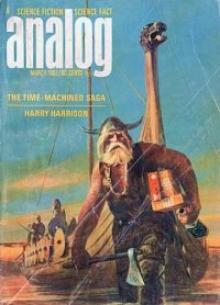 The Technicolor Time Machine
The Technicolor Time Machine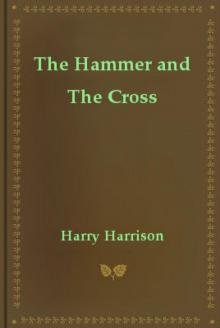 The Hammer and The Cross thatc-1
The Hammer and The Cross thatc-1 King and Emperor thatc-3
King and Emperor thatc-3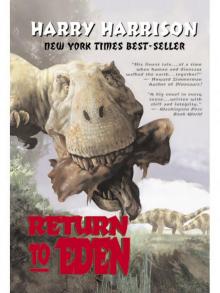 Return to Eden
Return to Eden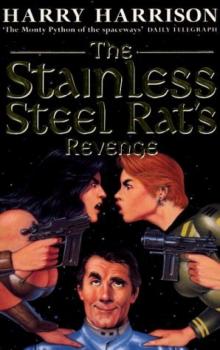 The Stainless Steel Rat’s Revenge ssr-2
The Stainless Steel Rat’s Revenge ssr-2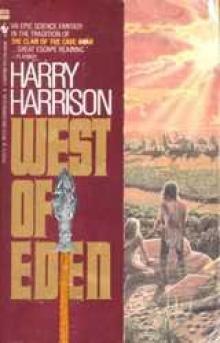 West of Eden e-1
West of Eden e-1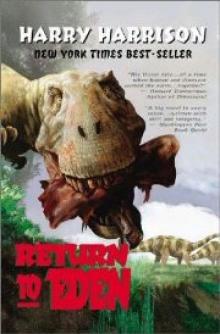 Return to Eden e-3
Return to Eden e-3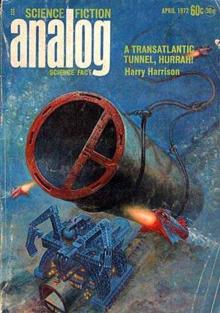 A Transatlantic Tunnel, Hurrah!
A Transatlantic Tunnel, Hurrah!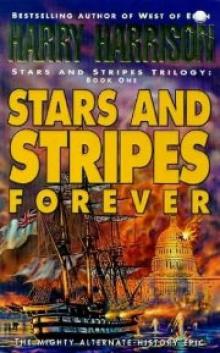 Stars and Stripes Forever sas-1
Stars and Stripes Forever sas-1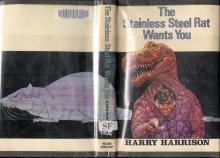 The Stainless Steel Rat Wants You ssr-4
The Stainless Steel Rat Wants You ssr-4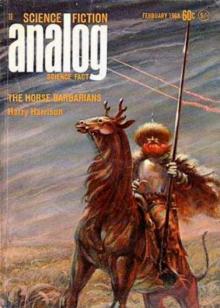 The Horse Barbarians tds-3
The Horse Barbarians tds-3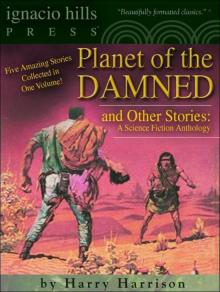 Planet of the Damned and Other Stories: A Science Fiction Anthology (Five Books in One Volume!)
Planet of the Damned and Other Stories: A Science Fiction Anthology (Five Books in One Volume!)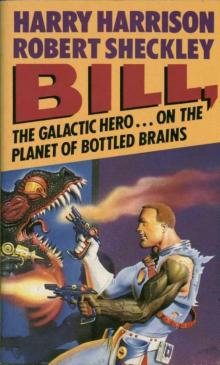 On the Planet of Bottled Brains
On the Planet of Bottled Brains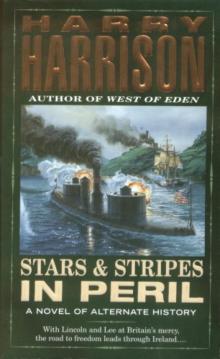 Stars And Stripes In Peril
Stars And Stripes In Peril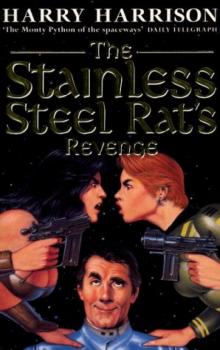 The Stainless Steel Rat's Revenge
The Stainless Steel Rat's Revenge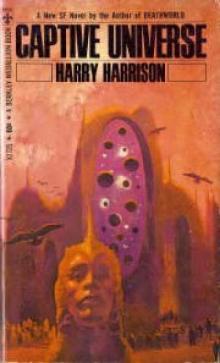 Captive Universe
Captive Universe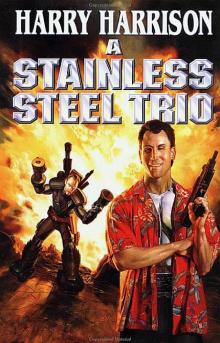 The Stainless Steell Rat Sings the Blues ssr-8
The Stainless Steell Rat Sings the Blues ssr-8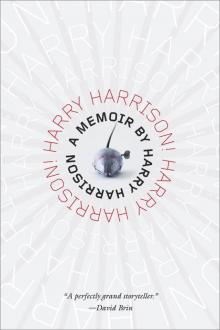 Harry Harrison! Harry Harrison!
Harry Harrison! Harry Harrison!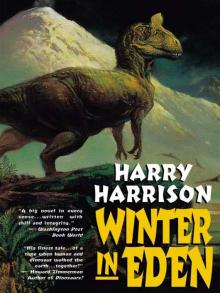 Winter in Eden
Winter in Eden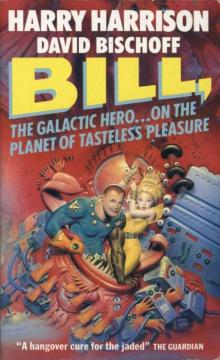 On the Planet of Tasteless Pleasures
On the Planet of Tasteless Pleasures